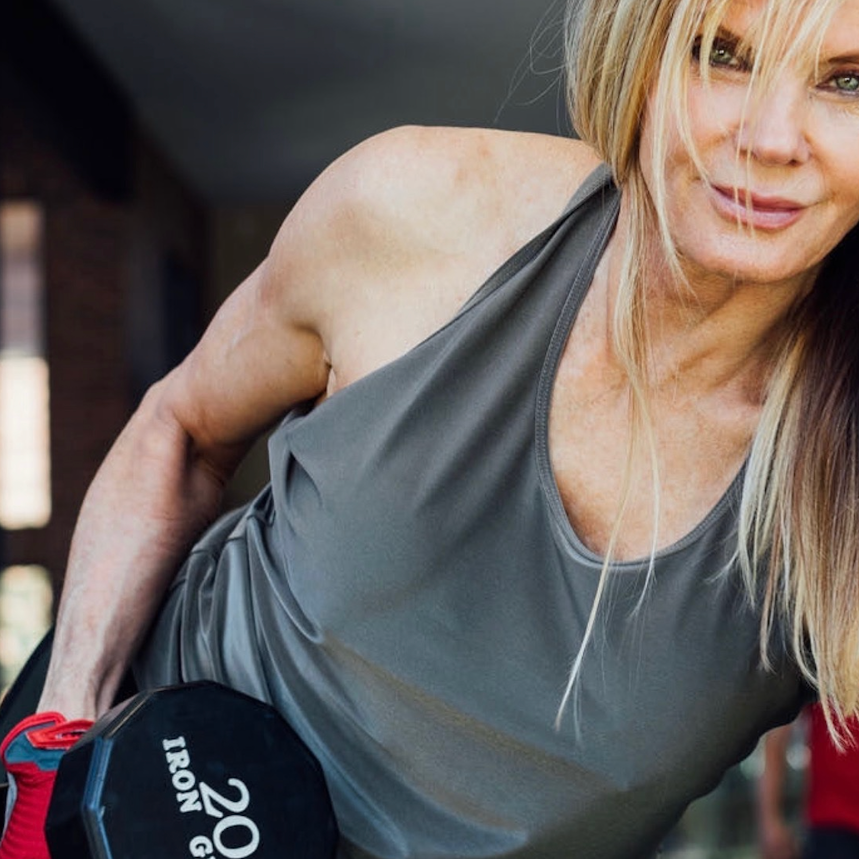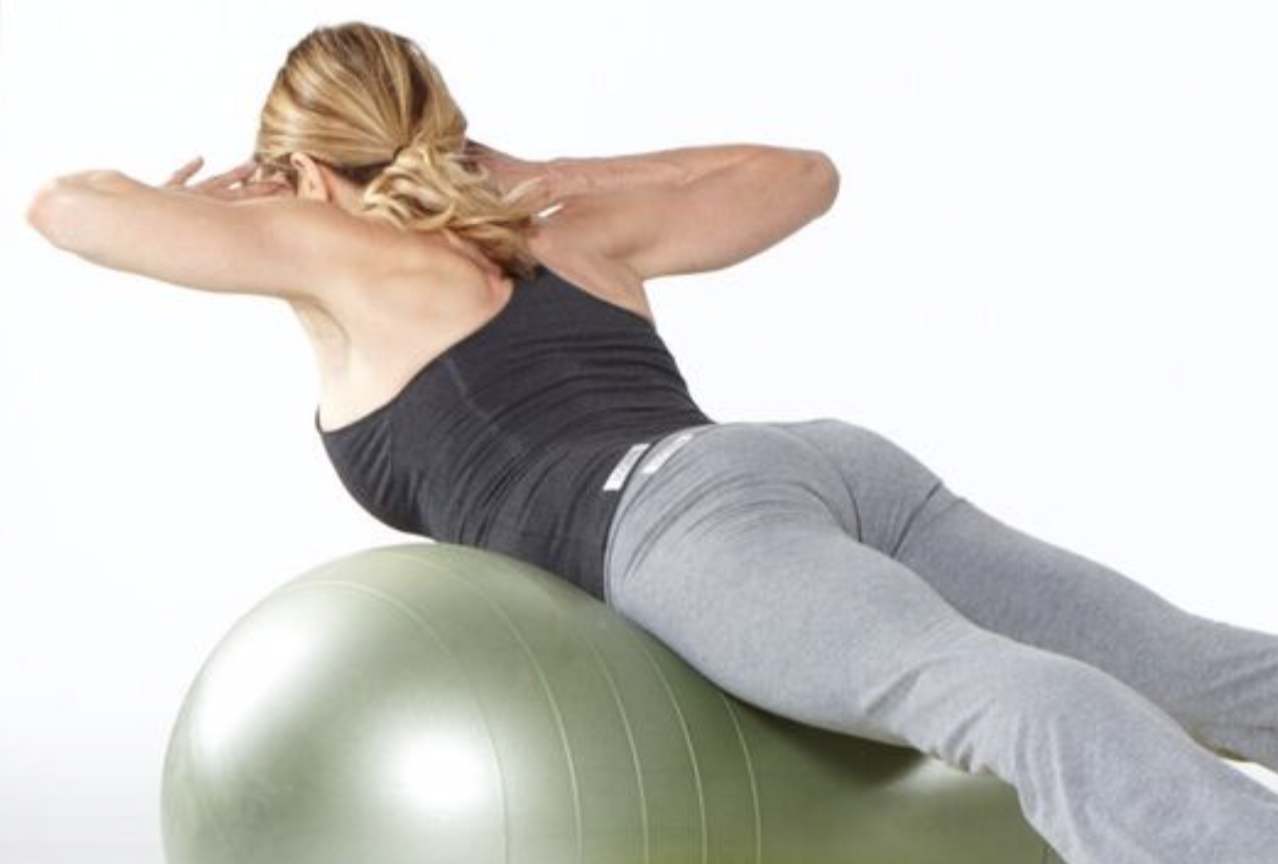Episode 27 | Bill Gifford | Stay Young Forever

CLICK PLAY!
FAMILIAR WITH PODCASTS? LISTEN ON iTUNES!
Follow Along With The Highlights
[00:02:20]
Kathy Smith: Bill, welcome to the show.
Bill Gifford: It’s great to be here. Thank you.
Kathy Smith: So aging – a topic near and dear to my heart. I loved reading the book. Because some of the things– because I’ve been in this business for a long time– I kind of knew or have read about, but what I didn’t realize is where this whole movement started and some of the pioneers that started this anti-aging movement. There are some pretty colorful ones. So I thought if you wouldn’t mind, maybe take a moment to tell us about some of your favorite characters that really spearheaded this whole movement of anti-aging.
Bill Gifford: Right. Well one of the most interesting people was this guy named Charles-Édouard Brown-Séquard. And he was a French physician. He’s known as the father of endocrinology, which is the study of glands. And once he got to be about 70, he realized he had sort of lost his step. He had lost his vigor, his ability to concentrate, his strength. He just felt less good. He felt old.
So since he knew about glands, he brewed up this concoction of basically mashed up dog testicles and injected himself with it. This is about 1889.
Kathy Smith: Was that a safe procedure?
Bill Gifford: I wouldn’t do it. But back then, scientists generally experimented on themselves first. And he was famous for doing all kinds of crazy experiments to himself. Once, he covered himself with varnish just to see what it would do to his skin. And he barely survived.
But with the testicle extract, he injected himself for three weeks, and then he stood up before a fancy scientific meeting in Paris and described his experiment and his results, and he proclaimed himself to be vastly rejuvenated. He was stronger, he could think more clearly, he could work harder, he could stay up later, and he could pee farther. And so, he declared it a success. And his colleagues were horrified.
Later on, there was a guy named John Brinkley who was based in Texas, and he became just about the richest man in America by performing surgery. And the surgery involved implanting goat testicles into the bodies of middle-aged men.
So you can see a common theme here. There’s a lot of interest in testicles back then and moves into actual science and other things.
[00:05:03]
Kathy Smith: That’s interesting because from the testicles comes the testosterone. And when you come to present day, I know that a few years ago – actually last year, I attended the A4M Conference, which stands for the Academy of Anti-Aging Medicine Conference. And I know 20 years ago or when it first started, there were just a few outliers or a few people going to this conference. And last year when I went, there were tens of thousands of people showing up to learn the science of how do we stay younger.
And part of it, by the way, was about hormones. And I know in your book, you wrote about when you attended. So do you want to tell us your experience when you went to the conference?
Bill Gifford: I would say that that conference is actually more about the business of staying younger than about the science of staying younger. It’s very focused on these hormone replacement treatments, which can cost you thousands of dollars a year for estrogen or testosterone replacement.
And quite frankly, the safety data is not great when you talk about hormone replacement. Especially, there’s more and more evidence that testosterone potentially increases your risk of dying for men. And what that means is that the hormone is actually accelerating aging and not slowing it down. So you might look and feel better or think you do, but you’re actually kind of burning the candle at both ends.
Kathy Smith: Well, I do notice– we had talked about this earlier before we started– but this idea of short-term benefits, long-term benefits. And a lot of times, people– as you said, the business of aging and anti-aging is about how can you be sexier, have great abs, more muscle tone? And it’s a business as far as when it comes to exercise that I’ve been promoting for many, many years.
But along with the cosmetic, the one thing that I’ve always prided myself, when it comes to my involvement in the fitness movement is this idea that it’s kind of a side benefit, because you’re going to look better. But all of the things that are happening internally inside your body, with your mental outlook, with your heart, your lungs, your bones. And I think that’s one of the things that we are not separating maybe quite as well when it comes to this anti-aging.
Yeah, short term, this might give you a little boost of energy or it might make your muscles a little tighter. But as you’re saying, we don’t quite know what’s going to happen, ten, twenty, thirty years after taking this product.
[00:08:03]
Bill Gifford: Right. And just as the women’s health study sort of sounded the alarm on the potential cancer risk of estrogen replacement treatments, there’s now more and more data that shows that testosterone could be dangerous as well. And it now has an FDA black box warning.
But another thing about testosterone for men is that generally, guys with “low T”, generally, there’s something else going on. There’s some other problem that is dropping their testosterone levels. And it could be anything from being overweight or obese. They could have sort of incipient diabetes. They could have some other medical problem. They’re wife might have just had a kid. That drops your testosterone. So there are other underlying causes.
Kathy Smith: Going back to just the longevity question, because one of the things about even the title of your book, Stay Young Forever, is it nature, nurture? What percentage of our longevity is based on our genetic makeup and what percentage is our lifestyle – the type of lifestyle we’re living?
Bill Gifford: The genes versus lifestyle question – that’s sort of the eternal question. And of course, they both play a role. But what the research seems to show is that if you have a healthy lifestyle, meaning you’re active, you don’t eat too much, you don’t become obese, you don’t get diabetes, you have a much better chance of being a healthy 80 year old – not living to 80, but being a healthy 80 year old.
But then after that, genes seem to take over. And so, to be a healthy 100-year-old, you really have to have certain genes that essentially protect you from the things that get all the rest of us like heart disease, heart failure, cancer, diabetes, and Alzheimer’s.
And centenarians generally seem to be protected from those things. I have a dog who’s 16 years old, and she had a brother. And the brother died when they were 12. He had a tumor. So she must have genes that protect her from cancer, which is what generally kills dogs. And it’s the same thing for people who live to great old ages.
[00:10:36]
Kathy Smith: So do you think, with the science – because you’re out there. You’re interviewing, you interview, you’ve gotten to talk to so many fantastic and talented people and smart people. Is the thought that with what we’re doing now in the laboratories and all of the universities around the country that what they’re coming up with is going to add maybe just a few years to our lives? I’ve read– I don’t know if it’s the Peter Fields or there are different people– I’m going to live to be 150. It’s like they’re doubling, almost, the life expectancy and throwing those numbers out. Is any of that based in reality, or is it just hope and prayers?
Bill Gifford: There is sort of a school of thought generally sort of centered around Silicon Valley that somehow, we can engineer aging out of the human body, out of our cellular biology. And that seems to be, to me, wishful thinking since aging has had two billion years to evolve, and it’s going to be difficult to undo it.
But then, again, the science is very much in its infancy, and it’s been a very underfunded area of research up until now. So we don’t really know. But one thing that is interesting is that scientists have learned that aging in fact modifiable and malleable – at least on the margins.
So you can feed a lab animal a different diet, and it will live 25% longer. There are drugs you can give mice or monkeys or other animals and they will live 20% to 25% to 30% longer.
And so, the possibility that in the pretty near future, we’ll be taking some sort of benign medication that will let us be healthier when we’re 80 or 85 or even 90. I think that’s a distinct possibility and maybe even probable.
There’s a medicine called Metformin that’s going into clinical trials to see if it effects the progression of aging in humans.
[00:12:50]
Kathy Smith: Okay, well, hopefully, they discover these drugs in the next few years, because I’m looking forward to those (the ones that you can take the pill and get a little bit more life extension).
In your book, you mentioned about this pinch test where you pinch the skin on the back of your hand. For the listeners out there, if you just lift out your hand right now and look at your left hand, grab a fold of skin and pinch it– I remember doing this. When I turned 50, I remember girlfriends doing this.
When you’re around your 35-year-old, your 30-year-old, that skin just snaps right back into place. And then, the older you get, that skin, that indentation, that fold is still there. And you’re watching it and trying to make it disappear.
In the beauty world, in the skincare world, we’ve been taught that we’re losing collagen, we’re losing elastin, we need to put some moisturizers on. But what I found interesting – and I would love for you to explain this because I think this is a big part of aging that people don’t really understand – what’s happening there, you say in the book, is happening in the inside of our body. Can you explain the process?
[00:14:10]
Bill Gifford: Exactly. Aging overall is kind of characterized by just generally a loss of this elasticity. And it’s not just in your skin. It’s not in your various body parts where elasticity is a good thing. But it happens inside as well. It happens to your blood vessels. They become stiffer. It happens to the little compartments in your lungs, your tendons. A pretty good way to tell how old somebody is, is to look at their tendons. That’s what they do with laboratory animals.
But generally, this is the result of certain cellular processes that create these kind of junky biproducts that fill up the space in between the cells. I’m simplifying, but you get things– it’s called the extracellular matrix– and you get things like cross-linked proteins. You get biproducts. Lipofuscin is one of them. And things like that. And that just contributes to a loss of elasticity.
And so that’s one of the things, when we talk about engineering aging out of the body. That’s one of the things that people are looking at. They’re looking at drugs that might possibly maintain this elasticity a little bit longer.
And when you’re talking about your blood vessels, you’re talking about something that could increase the strain on your heart as things get stiffer and less flexible and raise your blood pressure and eventually kill you. So not only will you not look so great, but you’ll be dead.
Kathy Smith: Right. And it’s a big issue in this country. One of the things you mentioned– first of all, this idea of heart disease, you have a chapter in your book called Heart of the Problem. It’s interesting because heart disease runs in my family. This is so scary for me, because this year, I lost my sister. She was 68, and she died of a heart attack. I did lose my dad when he was 42. But I just lost my cousin this week, and he was 62, and it was heart disease.
So one of the things that I’m really aware of is what is happening inside those blood vessels. We talk a lot about cholesterol, and that’s part of the issue. But just this other aspect of stiffening of the arteries, and what other things would you say should you really keep your eye on when it comes to heart disease?
[00:16:55]
Bill Gifford: There’s been a lot of questioning of the link between cholesterol and heart disease. And certainly, of this supposed link between fat in the diet and risk for having a heart attack. Something like half of the people who have their first heart attack, they actually have good cholesterol numbers. And then I think there’s a lot of doubt starting to creep into this idea that we all should be on a low-fat diet. And the focus is kind of shifting towards the rule of sugar in the diet and carbs in the diet towards increasing cardiovascular risk. So that’s one thing.
Another broader point to make is that mortality rates from heart disease and heart attacks have dropped by half since 1960. So we’re actually making quite a lot of progress on that front. And that model of preventive medicine where you take drugs to reduce your blood pressure or to reduce your cholesterol, that model of proactive, preventive medicine is something that should be adopted for diseases like diabetes for example.
Kathy Smith: Along with, obviously, lifestyle changes.
Bill Gifford: Right. Absolutely.
Kathy Smith: So the lifestyle changes that you found have the biggest impact on aging, are they the obvious? There’s exercise. Is there either a specific type of exercise that they found that contributes to longevity or a specific type of diet? Or is it just what we’ve sort of been preaching? Do something, move your body, keep your weight down. Or are there a couple of hidden things in there that you might want to let us in on that we should add, whether it’s a vitamin, a mineral? Or just get back to the magic potion thing again, and there’s not really a secret vitamin out there to help with longevity?
[00:19:12]
Bill Gifford: If there was a secret vitamin out there, I would probably be trying to sell it to you. But really, I think the secret vitamin is exercise. Everybody, it kind of goes in one ear and out the other like, “Oh yeah. Exercise. Sure, it’s good for you. Maybe I’ll do it tomorrow.” And you think of it in terms of it’ll improve your cardiovascular health, it’ll make you look better in a bikini or whatever. But actually, it’s a really, really interesting area of research – the effects of exercise on basically all body systems from your brain to your liver, your skin, your sex organs.
They’ve found that your muscles, when they’re activated when they’re working, they send kind of beneficial signals to basically the rest of your body. And they’ve done comparisons of clinical trials of exercise and clinical trials of prescription medications against various conditions including diabetes obviously, heart attack risk, stroke, things like that. And exercise is as effective or more effective than nearly all of these major categories of prescription drugs. So exercise is the drug. It’s the miracle vitamin.
Kathy Smith: Since you’ve written the book, have you become a convert? Have you changed your lifestyle dramatically since writing the book? Minimally or dramatically?
Bill Gifford: I get that question a lot. I haven’t become a vegan or anything like that.
Kathy Smith: Do vegans live longer?
Bill Gifford: No, they don’t.
Kathy Smith: Okay.
Bill Gifford: It’s not a particularly healthy diet actually. You’re missing certain nutrients, and I think we evolved to be omnivores. But one thing I did do is I did make exercise a part of my daily life. Actually, I didn’t get to go for my bike ride today. So I’m a little bit cranky.
But another thing I did – just to break it down a little more–
Kathy Smith: And Bill, I’m going to be your coach here. The day’s not over.
Bill Gifford: Okay. That’s true. Okay, Kathy.
Kathy Smith: No excuses. Okay. Go ahead.
[00:21:45]
Bill Gifford: But just to break it down a little bit more, exercise is a very broad topic. And I do try to make activity part of my daily life, but I also try, a few times a week, to really get out there and push it – really sweat, really feel it so I feel like I’m doing something. And I think it’s important to have some intensity in there. Again, because it activates certain cellular repair kind of mechanisms that lower intensities don’t really reach.
The second thing is, speaking of elasticity, I’ve started doing yoga on a somewhat regular basis. And I find that makes my body feel better, but it’s also good for my mental stress levels, that kind of thing. It kind of calms me down, helps me sleep better.
And then, the third thing I do, which is a little bit weird and people look at me funny, but as we get older, as we hit middle age, our sense of balance starts to get a little wonky. So I’ve been working on balance. And yoga’s part of that. I’ll do things like, if I’m at the mall or out walking, I’ll try to balance on a curb like I’m on a balance beam or I’ll try to stand on one foot, see how long I can stand on one foot, things like that to train the balance.
Because as you get older– older people who are sort of losing their sense of balance, it becomes harder to walk. You don’t move as efficiently. You get more tired. It has all these cascading effects. And that’s something that you can train pretty easily.
[00:23:27]
Kathy Smith: I do a little thing in the morning when I wake up, and it’s funny you say this. But I’m a yogi, so I’m in class, and I have worked on balance my entire life. So I have good balance. But one of the things I was noticing, I had read in some magazine that you should do a test where you stand on one leg, and then, you close your eyes.
Bill Gifford: It’s hard.
Kathy Smith: I’m so competitive. They said, “Well, fifteen seconds is good. Thirty seconds is what you’re aiming for.” So again, I’m in my kitchen and you’re on a flat, hard surface, and I have my iPhone there. Because you can’t do too much movement with it, so I clicked the button, which is the timer. And then, I close my eyes and it’s shocking how in ten seconds, you start to feel a little bit of a wobble. And I play this game. There are days that I get up to 45 seconds, and it’s like, “Yes!”
But it’s also an indicator of a little weakness. Maybe I’m speaking out of turn. I’m not sure exactly what the indicator is. But there are certain days I will wake up and ten seconds is my max. And I’m like, “Wow!” Then I get a little nervous about it and I spread my toes out and I work on it a little bit more.
But you’re right. And it doesn’t really take that long. They’re 30-second tests. I do it maybe three times, so it’s a couple of minutes. But to do it on a regular basis and to have a routine in the morning has been something I’ve incorporated in my lifestyle also, my morning routine.
[00:25:08]
Bill Gifford: Yeah. I think whatever you are, it’s good to train your balance in some way. And it’s something that’s overlooked in traditional fitness routines where we get strapped into these machines and you’re pushing weight in all these different directions. And it’s not really training your body awareness or your sense of balance. So that’s one thing I get out of yoga.
Kathy Smith: We only have a few more minutes, but I want to ask you quickly on diet. You mentioned vegan. I’m sure you’ll get people that are going to try to refute that. What I’ve noticed with science is that there’s a study that can support your argument many times – or a portion of your argument. Like if you want to minimize heart disease, or I’ve seen research about diabetes and having a more vegetarian diet. And yet, I agree. I’m in your camp of being more of an omnivore.
But my thing is, I’ve researched through the years this idea of fasting and intermittent fasting. And I know you have a line in your book I like which is something called “starving for immortality”. And I noticed in that area, you mentioned Valter Longo and some of the work that he has done with his fasting mimicking diet. I interviewed Valter a few months ago. And this idea that if you take food away for a controlled period of time or even more than that. If you restrict calories, that one, restricting calories can extend life; two doing some fasting can maybe help minimize your risk for certain diseases. Now, can you maybe kind of expand on that?
Bill Gifford: Sure. This is something they kind of discovered accidentally 60 or 70 years ago – that if you feed rats less or lab animals less, they seem to live longer. So that was the origin of this whole idea that you could long term, basically, starvation would make you live longer.
But then the question you have to ask is do you want to live longer if you have to be on this sort of radical diet the whole time? So what Valter and some other people are working on is much more appealing – the idea that you can go without food for x period of time. Like, he talks about doing it for a few days every three months or so.
And what’s really interesting is he dug into sort of the cellular biology behind that and found that when your cells are sort of deprived of nutrients and there’s less glucose and all that kind of stuff going into your body, they go into sort of a stress resistant sort of pro-longevity mode.
If you think about it, that’s sort of built in by evolution to kind of in times when food was not available three meals a day or four meals a day– there was no Taco Bell– we would have to go for a couple of days without food – maybe a week.
So organisms had to survive until the next meal. And so, that’s why they think these short periods of fasting are actually ways to kind of kick start your body and put you into this more stress-resistant pro-longevity kind of mode. It’s a pretty cool idea. It’s not too hard to do.
[00:28:49]
Kathy Smith: Yeah, I know. I agree. I’ve done it through the years. And it makes a world of difference for me on my energy levels, maintaining weight, minimizing inflammation, I think, in the body. And also, just for me, it’s breaking habits.
Like, I’ll get in the habit of having a lot of sugar, let’s say. And it builds up, of course, over a year. When you get on something like that, it breaks the habit, and you kind of have a fresh start.
It’s not that I eliminate sugar, then, from that point on. But now, you’re not eating quite as much. And I notice that after you do this year after year, that you start to build some good habits out of it.
Well, I could talk about his topic forever. But I know I have to let you go. I just want the audience to just remember that aging is happening in your body really decades before it reveals itself on your face.
You might see a wrinkle and go, “I’m getting older.” But really, the body, your heart disease or your cancer, all that’s starting to happen much sooner than you might expect.
And we’re bombarded with all this conflicting information. What’s interesting is our political system right now. Sometimes when a statement is made and then if it’s repeated, especially on the internet enough times, it all of a sudden is a fact. I see that in my field. I see things that are written, and I’m going, “Oh, my gosh. We debunked that 15 years ago.” But just because it’s said so many times it’s part of the vernacular.
So, what I love about your book, Spring Chicken Stay Young Forever or Die Trying, is that it really does shed light on the claims of which ones are true, which ones are questionable, which ones we still don’t know enough about.
So if you’re looking to turn back the clock on your aging body, I’d suggest you pick up Bill’s book. Once again, Spring Chicken Stay Young Forever or Die Trying. Thank you, Bill, for being here.
Bill Gifford: Thank you so much. You raised an interesting point there that I just want to re-emphasize. And that is that a lot of these diseases of aging have kind of a long prologue, and by the time you get to the doctor with your heart disease or diabetes, certainly, it’s kind of too late.
So really, it’s something that people in their thirties and forties should be thinking about before they get to the point where it’s a lot tougher to deal with. But thank you so much. It’s been great talking to you.
Kathy Smith: Yeah. Great advice. Okay. Thanks, Bill.
Bill Gifford: Thank you.
[00:31:13]









